Is it ok to mix mulch into soil that will be used for next season?
rnon99
6 years ago
Related Stories

GARDENING GUIDESHow to Pick a Mulch — and Why Your Soil Wants It
There's more to topdressing than shredded wood. Learn about mulch types, costs and design considerations here
Full Story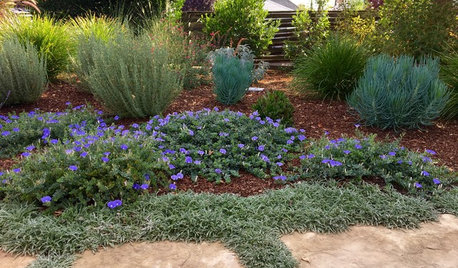
GARDENING GUIDESWhat to Do This Fall to Build Healthy Garden Soil
Take advantage of the cool season to improve soil texture and replenish nutrients
Full Story
GARDENING GUIDESNew Ways to Think About All That Mulch in the Garden
Before you go making a mountain out of a mulch hill, learn the facts about what your plants and soil really want
Full Story
GARDENING GUIDES8 Tips to Get Your Early-Spring Garden Ready for the Season
Find out how to salvage plants, when to cut back damaged branches, when to mulch and more
Full Story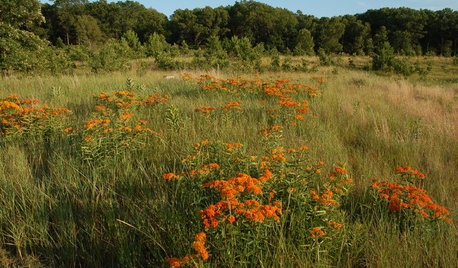
GARDENING GUIDESThe Art of Green Mulch
You can design a natural garden that doesn’t rely on covering your soil with wood and bark mulch
Full Story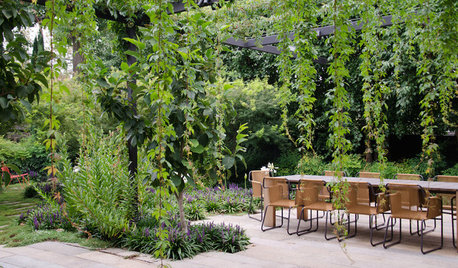
LANDSCAPE DESIGNSee 5 Unexpected Ways to Use Vines
Vines can grow over slopes, trail off pergolas and add seasonal color to the garden
Full Story
FARM YOUR YARDHow to Get Good Soil for Your Edible Garden
The nutrients in your soil feed the plants that feed you. Here are tips on getting it right — just in time for planting season
Full Story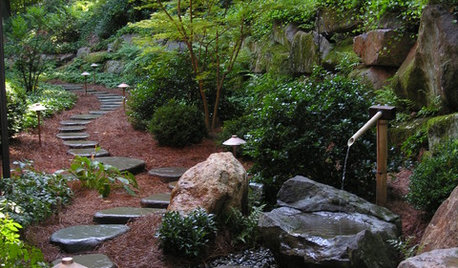
GARDENING GUIDESLowly Mulch Makes Magic in the Garden
Find out why you should be mulching your garden beds and what material is right for your site
Full Story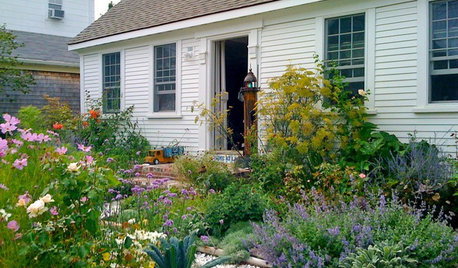
GARDENING GUIDESVegetables and Flowers Mix in Beautiful Edible Gardens
Ornamentals, meet your edible garden mates. We know you'll get along just beautifully
Full Story
COOL-SEASON CROPSCool-Season Vegetables: How to Grow Potatoes
This ever-popular tuber is a stalwart in spring and fall gardens and a staple in kitchens everywhere
Full Story


Embothrium
digdirt2
Related Discussions
Re using soil mix
Q
Is it ok to use potting soil in my garden?
Q
Thinking of soil prep for next season....
Q
prepping potting soil for next season, would like better results
Q
daninthedirt (USDA 9a, HZ9, CentTX, Sunset z30, Cfa)
gardengal48 (PNW Z8/9)
rnon99Original Author
gardengal48 (PNW Z8/9)
daninthedirt (USDA 9a, HZ9, CentTX, Sunset z30, Cfa)
digdirt2
rnon99Original Author
daninthedirt (USDA 9a, HZ9, CentTX, Sunset z30, Cfa)
gardengal48 (PNW Z8/9)
Hrib
nandina
gardengal48 (PNW Z8/9)
daninthedirt (USDA 9a, HZ9, CentTX, Sunset z30, Cfa)
gardengal48 (PNW Z8/9)
daninthedirt (USDA 9a, HZ9, CentTX, Sunset z30, Cfa)
rnon99Original Author
digdirt2
daninthedirt (USDA 9a, HZ9, CentTX, Sunset z30, Cfa)
rnon99Original Author
nandina
daninthedirt (USDA 9a, HZ9, CentTX, Sunset z30, Cfa)
rnon99Original Author
gardengal48 (PNW Z8/9)
digdirt2
daninthedirt (USDA 9a, HZ9, CentTX, Sunset z30, Cfa)
rnon99Original Author
gardengal48 (PNW Z8/9)
digdirt2
rnon99Original Author